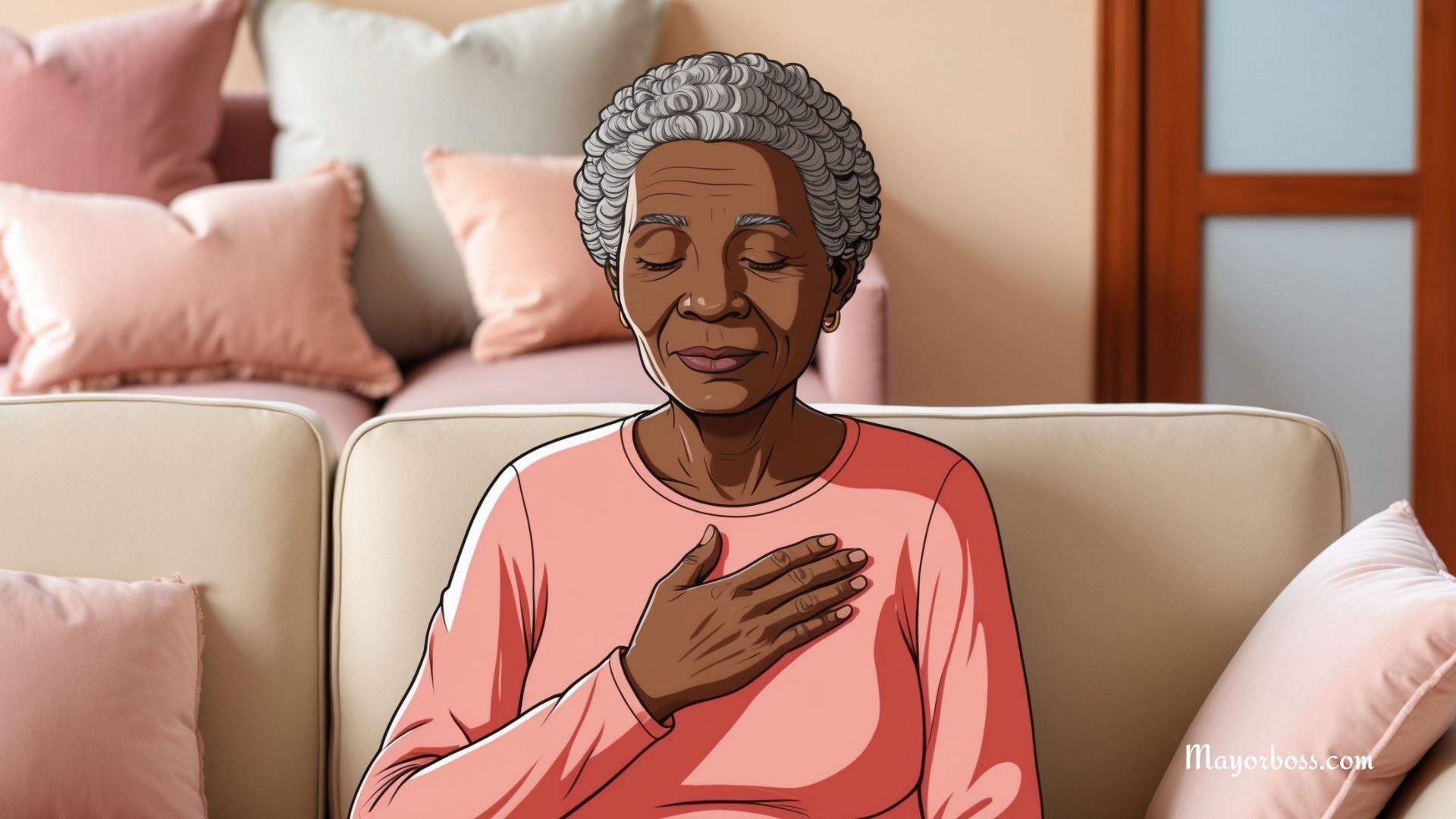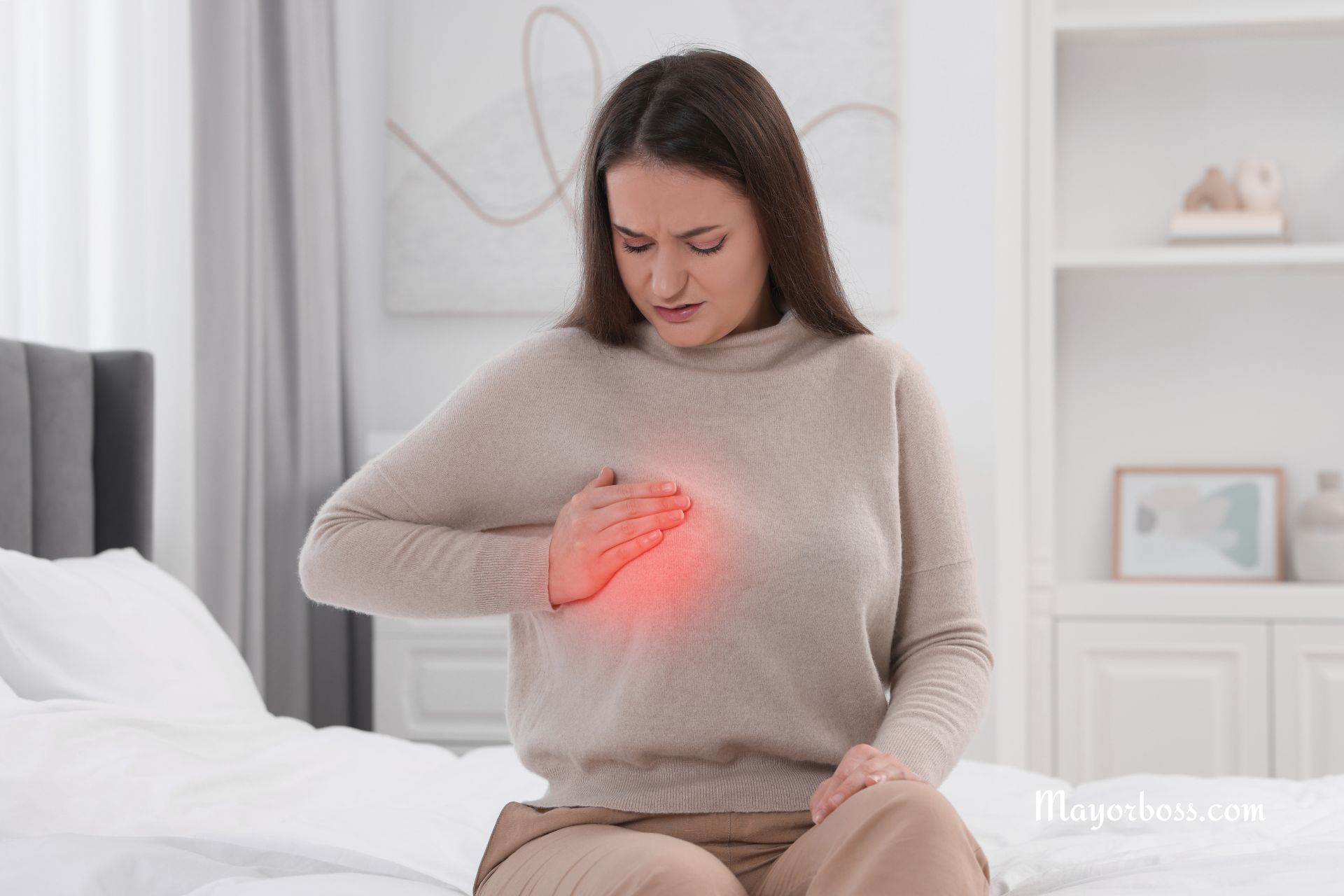6 Warning Signs of Cardiac Arrest That Can Show Up a Month Before It Happens
Cardiac arrest is when your heart suddenly stops working, which makes you stop breathing and lose consciousness. It can be very dangerous and even deadly if not treated right away. But sometimes, your body gives you warning signs up to a month before it happens. Knowing these signs could save your life. Here are some key warning signs that might mean a cardiac arrest is coming.

Feeling Extremely Tired for No Clear Reason
One of the earliest signs that might mean you are at risk of cardiac arrest is unexplained fatigue and a complete lack of energy. This isn’t like being tired after a long day—it’s an exhaustion that doesn’t go away, no matter how much you rest. This kind of tiredness can start about a month before a heart problem happens. You might notice that even simple things, like walking to the mailbox or going up a few stairs, make you feel super tired. When your heart isn’t working well, it can’t pump enough oxygen-rich blood through your body, and that makes you feel worn out. If you feel like this without any clear reason, you should see a doctor soon.
Chest Pain or Discomfort That Comes and Goes
Chest pain is a well-known sign of heart trouble. When it comes to cardiac arrest, the pain might not stay all the time—it might go away only to return later. You could feel a heaviness, tightness, or pressure in your chest, especially when you’re stressed or doing physical activity. The pain can also spread to other areas like your arms, neck, jaw, or back.
According to Dr. Iroko Anita, a certified medical doctor, chest pain like this should not be ignored, especially if it happens often or lasts longer than usual. It could be a sign that your heart is in trouble. If you have chest pain that keeps coming back, you should reach out to your healthcare provider.
Shortness of Breath When You Are Resting
Another important warning sign is shortness of breath, even when you’re not doing much. If your heart is having trouble, it might not pump enough blood for your body’s needs, and that can make you feel short of breath. This could be an early sign of a heart condition that could lead to cardiac arrest if not treated, says Dr. Anita. If you find it hard to breathe, especially if it gets worse over time, talk to your doctor.
Heart Palpitations or Racing Heart Without a Clear Reason
If you feel like your heart is beating really fast, pounding hard, or not beating regularly, it could be a warning sign. These feelings are called palpitations. You might feel them in your chest or throat, and they can be scary. Some palpitations are harmless, like those caused by stress or too much caffeine, but others can mean something is wrong with your heart’s rhythm. Dr. Anita says that an irregular heartbeat can be a sign that your heart is struggling to keep a steady rhythm, which could lead to cardiac arrest. If you often feel palpitations or they last for more than a few minutes, see your doctor.
Feeling Dizzy or Lightheaded Could Be Linked to Your Heart
Dizziness or feeling lightheaded might seem harmless, but it can mean your heart is not working well. If the heart isn’t pumping blood properly, there might not be enough blood getting to your brain, which can make you feel dizzy or faint. This is especially concerning if it happens suddenly or without any reason. Sudden dizziness could be a sign of a heart problem that needs attention right away. If you feel dizzy a lot, especially if you also have other signs on this list, it’s important to call a doctor.
Swelling in Your Legs, Ankles, or Feet Can Be a Sign of Heart Trouble
If your heart isn’t working properly, it can cause fluid to build up in your body. This might cause swelling in your legs, ankles, or feet. This swelling is called edema. The National Library of Medicine says that edema is when your body can’t get rid of fluid properly, which can happen if your heart is too weak to pump blood well. If you notice swelling that doesn’t go away, especially if you also have other symptoms like shortness of breath or feeling very tired, it could be a sign of heart failure or cardiac arrest. You should see a doctor right away.
Cardiac arrest is a very serious emergency, but paying attention to your body and recognizing these warning signs could help you prevent it. If you or someone you know has any of these symptoms—extreme tiredness, heart palpitations, chest pain, shortness of breath, dizziness, or swelling in the legs or feet—you should talk to a doctor as soon as possible. Catching these signs early might help stop cardiac arrest.
Frequently Asked Questions
Q: What is cardiac arrest?
A: Cardiac arrest is when your heart suddenly stops beating. This makes you stop breathing and pass out. It is very serious and needs treatment right away.
Q: Are the warning signs of cardiac arrest the same for everyone?
A: Not always. Different people might have different symptoms. It’s important to know common signs like feeling very tired, chest pain, and shortness of breath. If you feel anything unusual, you should see a doctor.
Q: What should I do if I have these symptoms?
A: If you have any of these symptoms, like chest pain, shortness of breath, or dizziness, you should see a doctor right away. Early treatment can help stop cardiac arrest and keep you safe.






